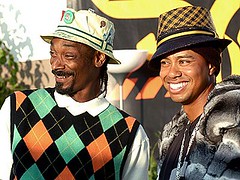Wretchard points out what most people with engineering backgrounds know: distributed systems perform better than centralized systems. They are robust, quick to respond, fault tolerant, self correcting, and in the case of the blogosphere, clearly illustrate how sclerotic the MSM has become; not to mention inbred.
There have been some particularly pathetic attempts to discredit the blogosphere as a generally bad thing, all of them pointless, defensive and revelatory of the depth of the author's ignorance. It is no more good or bad than a weapon is good or bad, which is to say not at all. Operators make the good and the bad, and there are enough bloggers and readers so that no one blogger or group can blot out others. I find even the bloggers I heartily disagree with are basically interested in helping others, finding and establishing the truth, and giving good ideas room to develop. Blogging is relentlessly democratic, and unsurprisingly not everyone is wild about that.
I'm sure many in mainstream media are terrified; imagine being on the job for years and then they put a camera in your office or vehicle to see what you're really doing (a terrible metaphor, yes, but I'm in a hurry to get to a New Year's dinner for God's sake) The loudest of the whiny attacks on blogs and bloggers by those in the MSM just points out major guilt on the part of the whiners, guilt about cutting corners and using publications for advocacy, and all the other little things journalists do because there's no one around to tell them not to. But what the blogosphere is really about is connecting millions of interested observers. And that's a great thing. In the case of the tsunami, blogs acted quickly and effectively because they could, and no structure or protocol existed to stop them. And that's a really great thing. Finally, there's not a question in my mind where I go when I really want to know the truth about something. And that's the best thing of all: that I have the choice.










